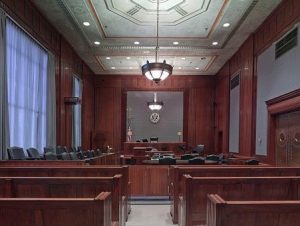USING THE COURTS

If you are involved in a property or commercial dispute that you are unable to resolve through direct negotiation, third party mediation or arbitration and feel that using the courts is your only sensible option, here are a few pointers that will help you.
- Courts of law deal with factual issues that the parties do not agree upon. Once a trial court hears all of the available evidence before the judge makes a decision, he or she will hear argument regarding the proven facts and the law that applies to the facts.
- The law applied may be judge made case law [jurisprudence], statute law, and regulations. Statutory and regulatory law in Canada is passed by Parliament or by a provincial legislature.
- When a trial judge decides a case and issues a final judgment, most of the time in a two sided conflict one side wins and the other loses. At times, neither side makes a perfect presentation and a split judgment is rendered such as 80/20 or 60/40. The court costs that are awarded to the winner are proportioned to take the result into consideration.
- If one side or the other is unhappy with the result appeals are generally available to the court of appeal of the province where the trial occurred.
- In Canada’s larger cities, civil cases often take more than five years to reach trial. If reaching trial early is financially important to either or both sides, there is not much than can be done. Courts are paid for by each province, and limited budgets are available to build courts, and pay staff and judges salaries.
- Given these limitations parties in conflict are best advised to take a second look at negotiation, mediation or private arbitration if a quicker result is crucial, unless some very significant legal principle is involved.

